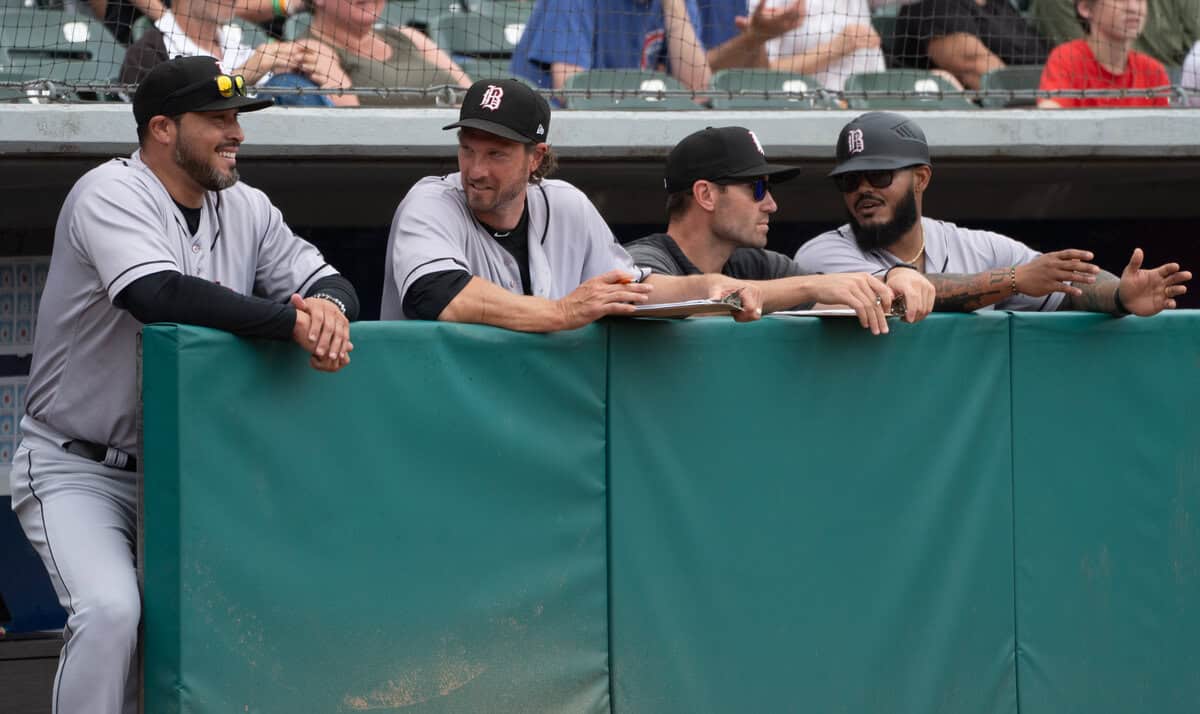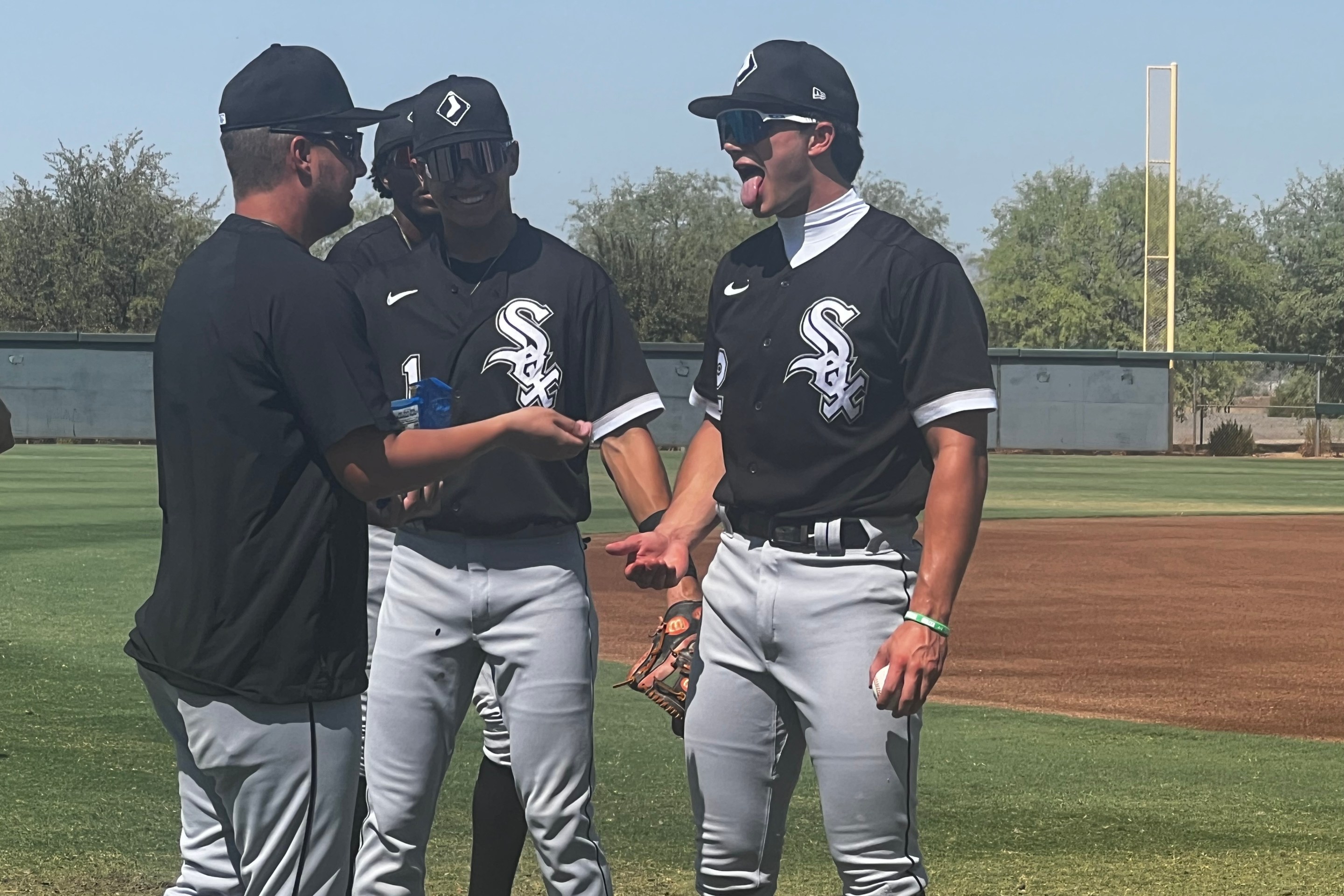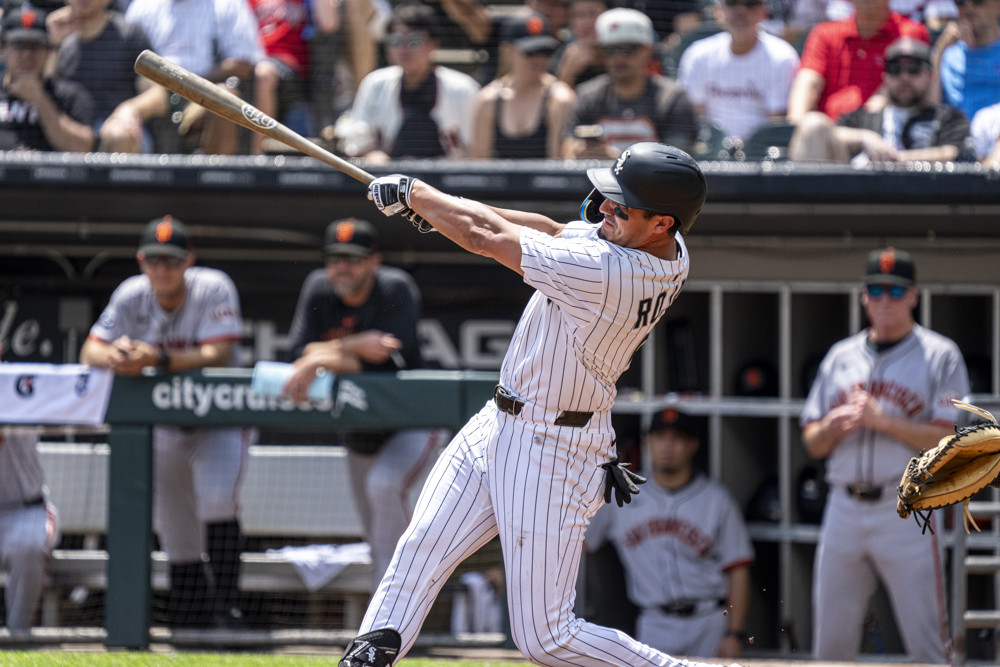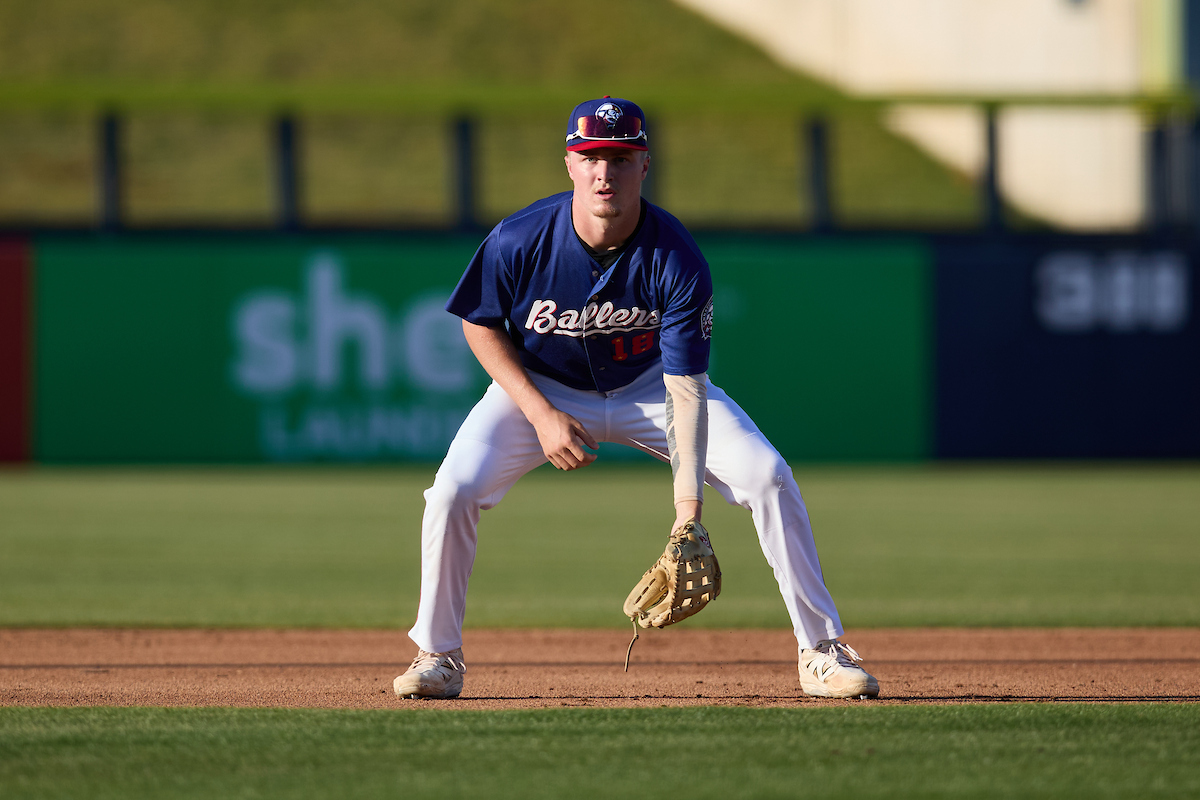In order to get to the Southern League Championship Series, the Birmingham Barons had to play the Tennessee Smokies nine days in a row. The first six games were meaningless, because the two teams were already set to meet in the Division Series, and the Barons held home-field advantage no matter what.
Talking to Birmingham Barons manager Sergio Santos before Game 2 of the Division Series on Thursday, I asked whether he kept anything or anybody in reserve for the games that theoretically mattered more. Santos said he treated them all the same.
"You just let them play. It was for us anyway," Santos said, going on to point out that the Smokies put their Game 1 starter on the development list to avoid facing the Barons twice in a week. Tennessee won the opener, forcing the Barons to the brink of elimination.
"At the end of the day, it's about these guys to get to the big leagues, not about winning a Double-A championship, you know what I mean? From our standpoint, we're trying to get our guys better in the hopes that they can make an impact with the White Sox."
On one hand, that's how Santos managed the final two weeks of the season. He could've rearranged Noah Schultz's schedule to save him for two playoff starts, but he adhered to the original plan. Schultz pitched on the last Saturday of the regular season, and then the Barons had to win the series against Tennessee without their best pitcher.
But based on what Santos said about winning in the minors earlier in the season, he probably wouldn't consider player development and winning mutually exclusive. In two different interview settings two months apart, he stated nearly the exact same perspective, and you can choose whether you prefer his answer in April:
First and foremost is player development, but I’m a big believer in that if you do player development the right way, wins will be a byproduct of that.
Or the one he gave in June:
Player development is always going to be number one, but if you do player development in the right way wins will be a byproduct.
After that pregame chat, the Barons won out. They sent the Smokies' sizable social media team home empty-handed by winning both games at Regions Field to advance to the championship series, where they swept the Montgomery Biscuits to win their first title since 2013.
When you answer similar questions with the same words regardless of how much time passed or what happened in between, it risks being treated as a talking point. When you're 3-for-3 in managing teams to the postseason, and now 2-for-3 in winning your league's championship, you can call it an ethos.
The Birmingham Barons were an oasis of competence and good vibes in the White Sox organization early in the season. While the big league club stumbled out to a 1-9 start and the Charlotte Knights were bludgeoned by a stacked Norfolk Tides team, the Barons looked like the class of the Southern League from Opening Day.
Which was unusual. The Barons hadn't made the postseason since 2013, and the most interesting team I'd seen first-hand was the Project Birmingham version in September 2022, and that's primarily because the Barons had a Tabernacle Choir's worth of bodies in the home dugout.
This team didn't need gimmicks to be interesting. At most, they needed conservative season-opening assignments for Drew Thorpe and Bryan Ramos. With their help, the Barons boasted a five-deep rotation and a lineup with complementary skill sets. It felt strangely purposeful for Double-A, especially a White Sox Double-A team, and I came away from that weekend unexpectedly optimistic with what I saw.
Unlike the major league club, the Barons didn't punish anybody for having expectations, at least for the first couple months. The bulk of the team held together long enough to edge out Tennessee for the first-half title, and only when they were scattered to the winds at the All-Star break did some of the realities of being associated with the 2024 White Sox take hold.
The pitching staff remained highly effective even after turning over all five rotation spots over the course of the season, which is no small feat. Scoring runs remained the challenge, and when you look at the difference in name-brand talent from the start of the season to the end of it, the 31-38 second-half record looks like a pretty good outcome.
| Opening Day | Game 2 | |
|---|---|---|
| Edgar Quero | C | Michael Turner |
| Tim Elko | 1B | Shawn Goosenberg |
| Jason Matthews | 2B | Rikuu Nishida |
| Bryan Ramos | 3B | Nick Podkul |
| Brooks Baldwin | SS | Jacob Gonzalez |
| Duke Ellis | LF | Mario Camilletti |
| Jacob Burke | CF | Terrell Tatum |
| Terrell Tatum | RF | DJ Gladney |
| Wilfred Veras | DH | Wilfred Veras |
When it came down to a pair of three-game series, the Barons hit enough to finish what a mostly different cast of Barons had started, but it's instructive to itemize the halves of Birmingham baseball. The Barons of the first half provided an example of what a high-functioning system should be able to produce on a regular basis. The Barons of the second half showed that the White Sox still have a ways to go in that regard.
With the regular season over, instructional and Arizona Fall leagues beginning, and a whole player development chart to reshape in Paul Janish's second year as farm director, I'm curious whether and how Birmingham's success will be rewarded at the coaching level.
John Ely's pitching staff allowed just 472 runs over 138 games, the best in the Southern League by 30 runs, and there's elements of development and extremely good luck. Out of 138 games, 130 were started by intended members of the rotation:
- Jairo Iriarte, 22 starts
- Mason Adams, 17 starts
- Noah Schultz and Tyler Schweitzer, 16 starts
- Jake Eder, 15 starts
- Ky Bush, 14 starts
- Riley Gowens, 12 starts
- Drew Thorpe, 11 starts
- Juan Carela, 7 starts---------
- Garrett Schoenle, 5 starts
- Johan Dominguez, Connor McCullough, Jose Ramirez, 1 start
This reflects exceptional health, because once a Birmingham starter was up and running, he didn't miss a turn. Ely and Santos seldom had to scramble to get through a series, which is a gift for any minor league coaching staff. On the other hand, the starters who stepped up in the second half -- Schweitzer, Gowens, Carela -- wouldn't be prominently featured on any top prospect lists, yet they all made successful transitions from High-A to Double-A. Really, just about everybody who stepped forward avoided taking steps back.
Then you have Santos, who has reached the championship series with all three teams he's managed:
- 2022: 38-17, Won Flordia Complex League championsip
- 2023: 70-62, Lost South Atlantic League championship
- 2024: 72-66, Won Southern League championship
And while he might've benefited from managing in the Yankees system for the first two, his success with Birmingham stood out against the organization's overall winning percentage:
And when I asked Santos about the difference between managing in the Yankees and White Sox organizations, he claimed more agency for this season's success:
"A lot of similarities, but the thing I appreciate with the White Sox more is I'm able to manage more, kind of make more moves," Santos said. "I can pull a guy out of a game. I can pinch hit here, pinch run there, kind of more baseball stuff that you'd see in the big leagues. With the Yankees, it was very analytical driven, and it was just, this is what it is."
Like working off a binder, I asked.
"Correct," Santos said, "and here, you get the freedom of, when you have a gut feeling and you want to go with something, you can kind of go to it. So I appreciate that freedom from Paul Janish and everybody else with the White Sox."
In a Zoom call with reporters on Wednesday, Janish said Birmingham's run-prevention abilities reflected well on the coaching.
"John [Ely] does deserve a lot of credit, our pitching department as a whole. It's not any one guy. It's a lot of them. It's the staff in general," Janish said. "But you do give credit that Tyler Schweitzer started the year in Winston, Juan Carela started the year in Winston. Guys came up from Winston and plugged right in. Obviously Noah had a great year all year. There's a bunch of moving parts relative to that. That team played really good defense. You get Brooks Baldwin early in the year, you give Jacob Gonzalez a lot of credit for playing shortstop most of the year, Jason Matthews playing infield on that, Rikuu at the end of the year. The outfield was really, really good defensively all year long."
This is all worth noting when the White Sox have a managerial vacancy to address up top, and perhaps other coaches to shuffle around as well. Santos didn't fit Chris Getz's initial description for the top job ("we are focused on candidates that are currently with other organizations and in uniform"). Then again, Grady Sizemore didn't fit Getz's initial description either, but Getz said on Tuesday that Sizemore "deserves to be in the conversation," however wide-ranging that conversation may be. Santos will just need another round of expansion, because Getz limited the internal candidate talk to Sizemore for the time being.
“Other than Grady being part of the process, we’re still focused mainly outside the organization and on someone who’s in uniform," Getz said.
Given the White Sox's decades-old insularity problem, the hiring process would certainly appear far healthier if they selected their next manager from the outside, and empowered them to select their own coaches. After some surprising minor league success in the system, however, it'll be worth watching to see how they accommodate any coaching staff members who did all they could from within.






